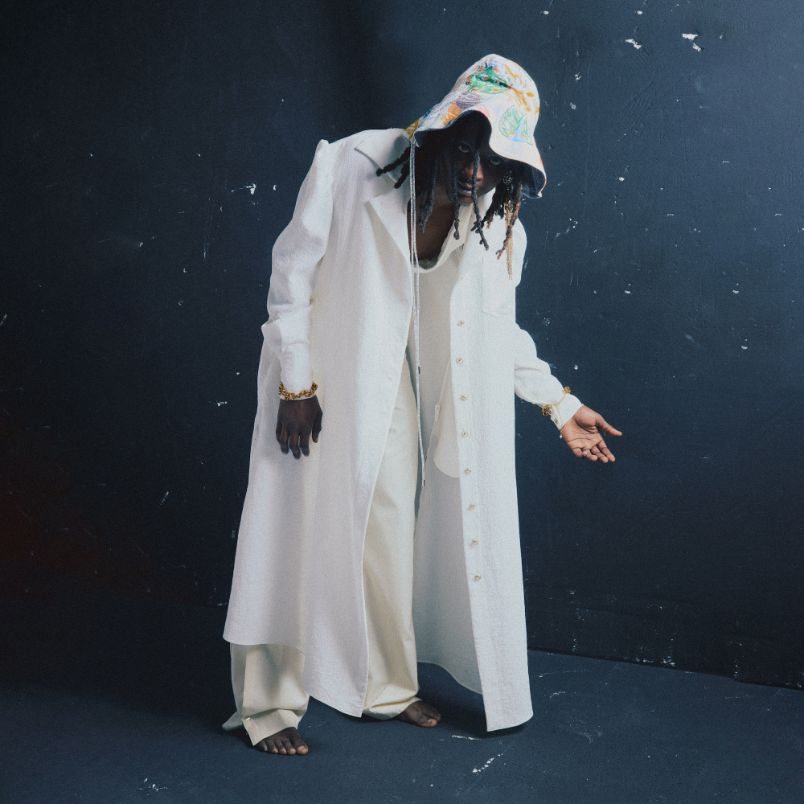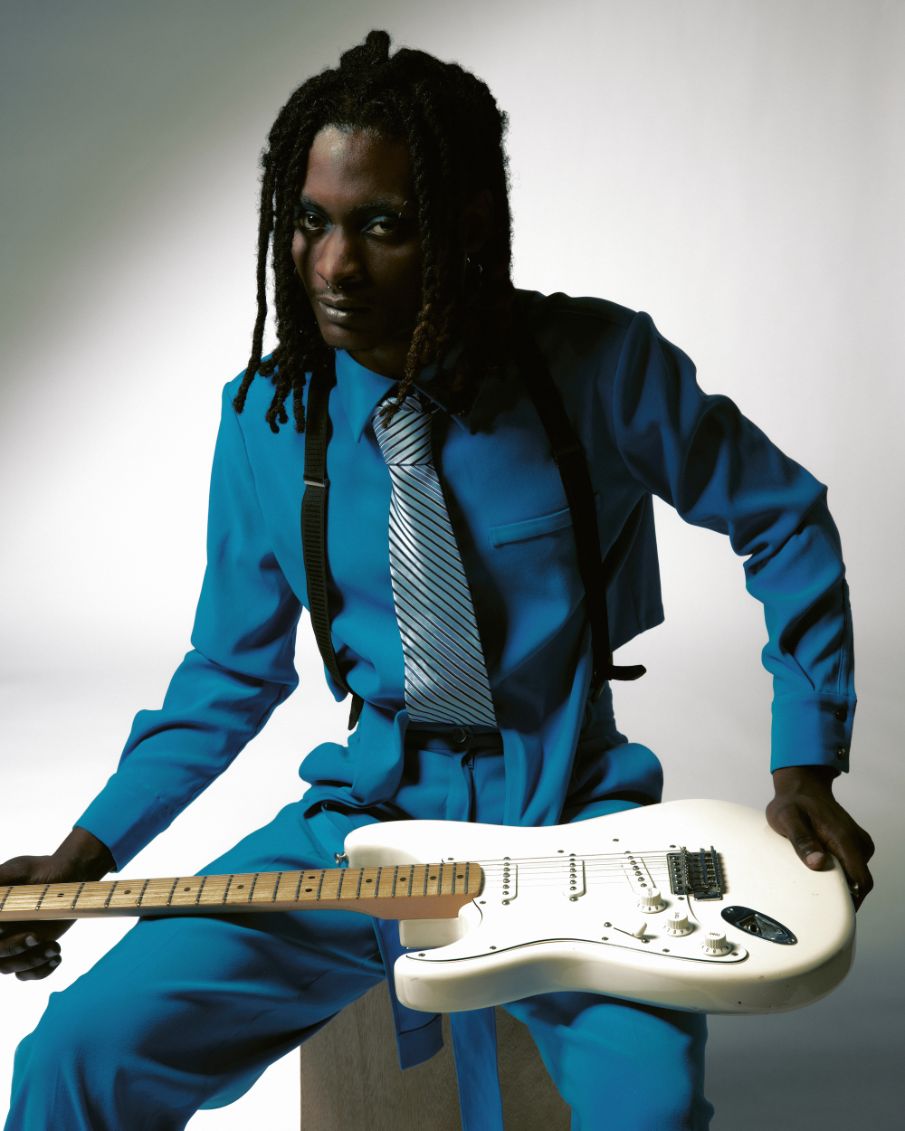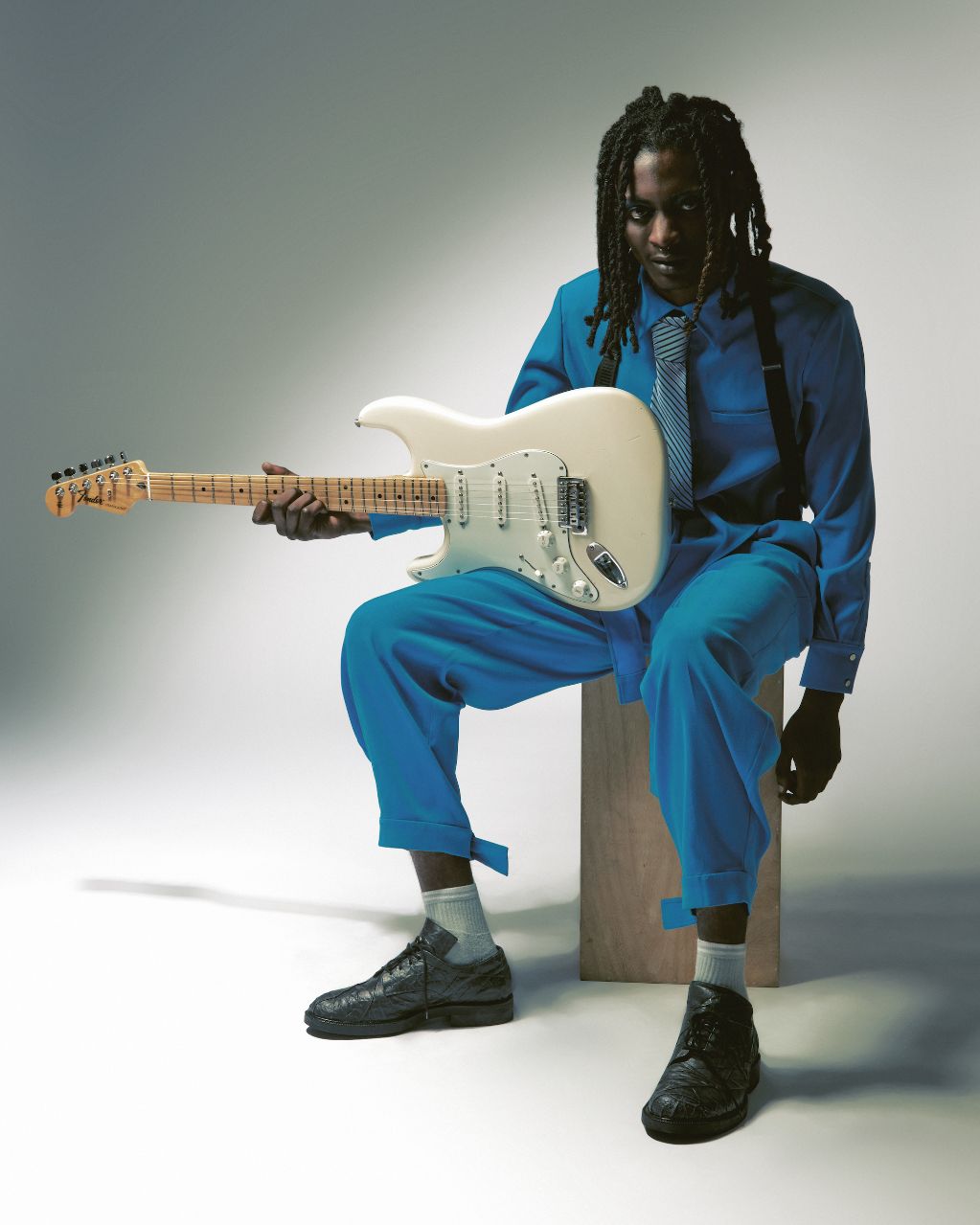Psykhi and His Unique Sound: In Conversation With FAULT Magazine
Psykhi In Conversation With FAULT Magazine

In the world of music, there are artists who create and then there are artists who innovate. Psykhi falls into the latter category with his unique sound that blends punk attitude with rap cadences. But where does this distinctive style come from? In our interview with the Ghanaian-born artist, he reveals how he got started in music, his creative process, and how he draws inspiration from different genres. He also talks about the challenges he’s faced as a Ghanaian artist working in the UK music industry and how he approaches live performances. Read on to learn more about Psykhi and his latest single ‘Dry’, and how his music continues to push boundaries.
Can you tell us a little about your musical background and how you got started in music?
Growing up I would experience music in glimpses, based on where I was and who might have had the radio on. My Mother has a love of music and that transferred to me. My Mother would take me to church, which introduced me to gospel music, and I’d hear different stuff from the highlife genre that narrated the local funeral processions and the local bars.
Your music is known for blending punk attitude with rap cadences. Can you talk about how you developed this unique sound?
I listened to Hip-Hop as a kid hanging with my uncle. When I was in my teens I discovered Rap Music. At the same time I was listening to a lot of rock and took a great interest in the instrumentals. I’m not one to force anything usually; I think that description fits what I was doing at the time and my influences which include carti and lil uzi vert but also nirvana and killing joke.
How did the idea for your new single ‘Dry’ come about, and what inspired the lyrics?
I worked with Jonathan Quarmby on Dry. I was exhausted and finding it hard to really be present with people in the moment.. you know that flow state you feel with your friends… That was gone.
I needed to take some time to rebuild my confidence and dry was born out of that journey.
Believe in yourself.

Can you describe your creative process when it comes to songwriting and producing music?
I often write lyrics based on the atmosphere iand the melodies I’m hearing after listening to an instrumental or playing a riff.
If I’m feeling a particular way I may play the guitar and find something I like.
I’ll play that a bunch of times and start translating the emotion melodically. I may have words raining down on me or just a few that give me a clue to what has to be expressed.
You’ve mentioned that you’re less interested in autobiography and more intrigued by unpicking the patterns you see around you. Can you elaborate on this philosophy and how it informs your music?
The laws of nature remain the same and you will find that history repeats itself; life moves whether you like it or not and by focusing on the present and unpicking pattens I see in the now, I can write and explore my creativity based more on what I’ve seen and felt rather than allowing the past to overshadow my process too much.
Your music draws from a wide range of genres, from gospel to Highlife to punk. How do these different musical influences come together in your work?
Gospel music taught me a lot about the importance of meaning or message within a song – I now really think about the purpose of a song. As a kid I would get memorable body sensations from listening to the local choir, I would physical feel it as they would sing in higher and higher octaves or harmonise in intricately with live instruments.
Then there’s Highlife, which has such good energy. I like how the prominence of bass in many highlife songs gives the song such an overarching feeling of nostalgia.
The lyrics always felt either funny and uplifting or very true and relatable. That also added to my idea of what music could be. My flow and sense of rhythm is definitely influenced by highlife.
Then punk taught me to be myself.
You’ve mentioned that Tame Impala’s ‘Currents’ blew your mind and helped you find the name and persona of psykhi. Can you talk a bit more about this experience and how it impacted your music?
First hearing “Currents” was a liberating experience. Before tame impala I knew what acid was but I hadn’t really been exposed to the concept of the mind or person within through music.

What are some of the challenges you’ve faced as a Ghanaian artist working in the UK music industry?
Just people thinking of me in a one dimensional way or assuming my genre based on my background.
How do you approach live performances, and what can audiences expect from a psykhi show?
Ghanian Grunge
What is your FAULT?
I spend a lot of time in my own head and sometimes I find it difficult to communicate with the outside world.